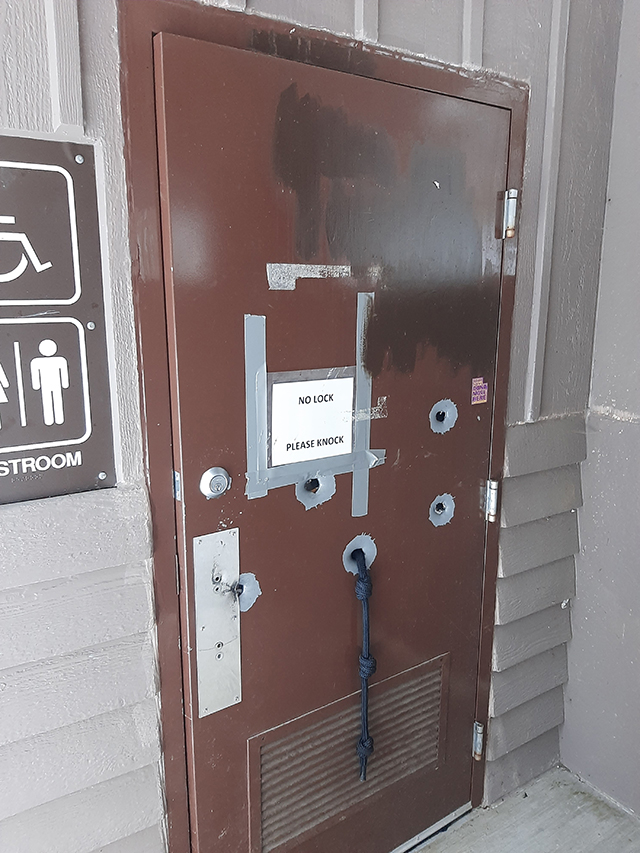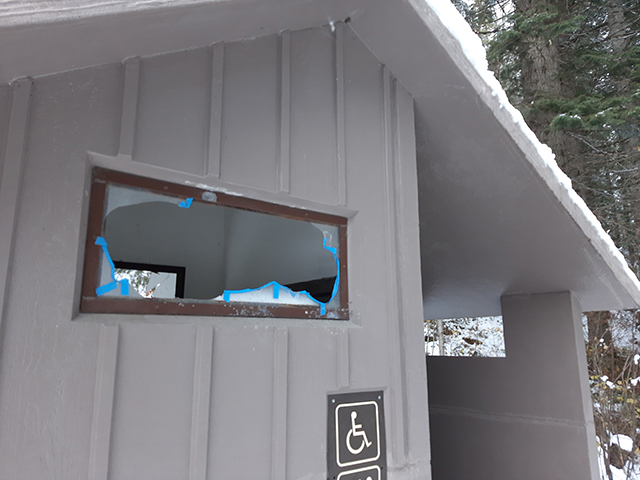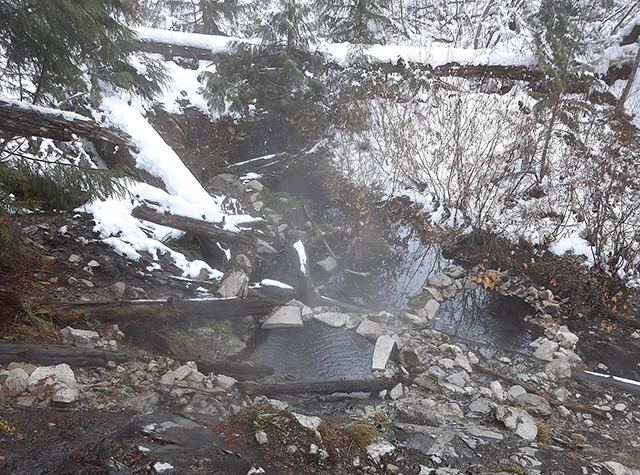| Forest Service to implement use restrictions at Weir Creek Hot Springs The Nez Perce-Clearwater National Forests will implement new use restrictions at Weir Creek Hot Springs starting the last week of November, citing public health and safety concerns and natural resource damage. The hot springs and surrounding area will be closed to occupancy from 8 p.m. to 6 a.m. (Pacific) daily under the new restrictions. A grace period for outreach and education will take place before the closure is enforced on a date to be announced. Weir Creek Hot Springs is one of two easily accessible hot springs locations in the upper Lochsa River corridor on the National Forest’s Lochsa-Powell Ranger District. Each location garners high visitation and heavy use by the public. “Unfortunately, a significant portion of the visitors to these hot springs do not follow responsible recreation guidelines, and some choose to participate in illegal behavior,” said Brandon Knapton, Lochsa-Powell District Ranger. “Sanitation, vandalism, and natural resource damage complaints are common at both locations. These issues range from littering and dispersed camping violations to illegal drug and alcohol use and improper human waste disposal.” In the past, Jerry Johnson Hot Springs was subjected to the most use due to the easy trail access and proximity to U.S. Highway 12. When impacts of use began to damage resources, restrictions were put in place to manage use through an overnight trail and area closure. Subsequent improvements to the trail, coupled with the closure and use restrictions, helped to mitigate the impact of the increasing popularity of that area. Similarly, public visitation to Weir Creek Hot Springs has been steadily increasing for years, resulting in the forest and Nez Perce Tribe working together to make improvements to the parking area and install a vault toilet to reduce public health risks and protect natural resources. The forest has also engaged in education and outreach campaigns focused on responsible recreation at the hot springs. “While these efforts at Weir Creek have reduced some of the sanitation issues, impacts to natural resources have actually increased,” said Knapton. The decision was made to implement use restrictions at Weir Creek Hot Springs due to the frequency and severity of natural resource and human health and safety issues occurring at the site, and due to the success of similar efforts at Jerry Johnson Hot Springs. The existing Jerry Johnson Hot Springs closure will be reissued concurrent with the new Weir Creek Hot Springs closure and restrictions. “We anticipate that these changes will result in less damage to federal facilities and natural resources, and will increase the safety, use, and enjoyment of the hot springs by the public,” said Knapton. “We also understand the strain these issues have put on our local law enforcement and emergency services providers.” Forest Service and emergency management services have responded to a number of serious injuries at Weir Creek Hot Springs requiring extraction of victims for hospitalization, often at night due to intoxication. Recently, the Lowell Quick Response Unit, a volunteer emergency medical services provider, contacted the Forest Service expressing concerns about medical emergencies occurring at the Lochsa Corridor hot springs. “There has been a distinct increase in 911 calls to these hot springs in the past two years that has required our immediate response,” wrote Lowell QRU. “We are concerned for the safety of the users of the trails at night and in the winter, as well as the safety of our crews that have to hike up these trails and endeavor to carry patients down the trails.” Federal, state, and local law enforcement and Forest Service staff have also documented an increase in natural resource damage, health and sanitation issues, and law infractions at the hot springs in recent years. “From January 1 to Dec. 14, 2021, Idaho State Police issued 49 misdemeanor violations for drugs, alcohol, and paraphernalia infractions at the hot springs, of a total 108 misdemeanor citations along Highway 12,” cited Knapton. “Over the past 5 years, over 44 incident reports have been documented at Weir Creek Hot Springs by Forest Service Law Enforcement Officers. These span from littering and damage to the vault toilet to possession and use of drugs including cocaine and methamphetamine.” The Idaho Department of Transportation has also cited concerns for public safety as an increased number of vehicles access the Weir Creek Hot Springs parking area, which is located off of U.S. Highway 12 on a corner with limited visibility. Visitors to the Nez Perce-Clearwater National Forests and all public lands should always make efforts to Leave No Trace and Recreate Responsibly. Remember to “take only photos, leave only footprints.” Leave nature where you found it, and make sure that anything you bring to the forest with you comes home with you after your visit. Abide by rules and regulations in the location you are visiting; they are in place to keep you safe and our natural spaces thriving. Don’t forget to call or visit your local ranger station for the latest information you might need before setting out on your adventure, and be prepared with all the necessary equipment and supplies you may need for the journey ahead. When the new hot springs use restrictions become effective, a copy of the Forest Supervisor’s Order will be available at Nez Perce-Clearwater National Forests offices or online at https://bit.ly/NPCclosures. Locations, business hours and phone numbers for Nez Perce-Clearwater National Forests offices is available online at https://www.fs.usda.gov/detail/nezperceclearwater/about-forest/offices.  Vandalized restroom door at Weir Creek Hot Springs trailhead. USDA Forest Service photo.  Vandalized restroom window at Weir Creek Hot Springs trailhead. USDA Forest Service photo.  User-created hot springs pools at Weir Creek. User-created pools impede creek flow, impacting the natural hydrology of the area. USDA Forest Service photo. |